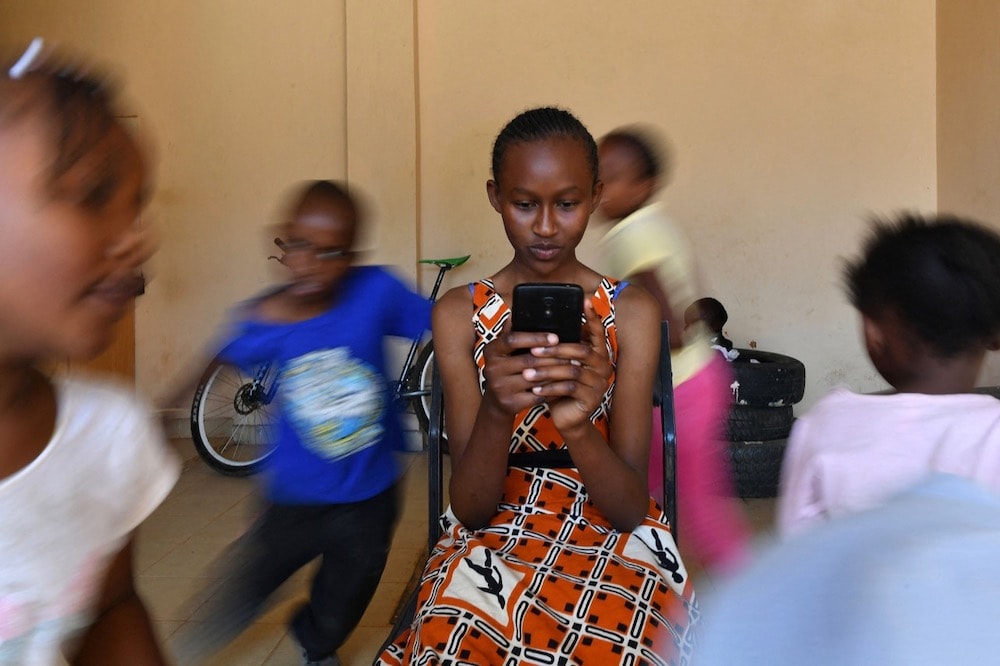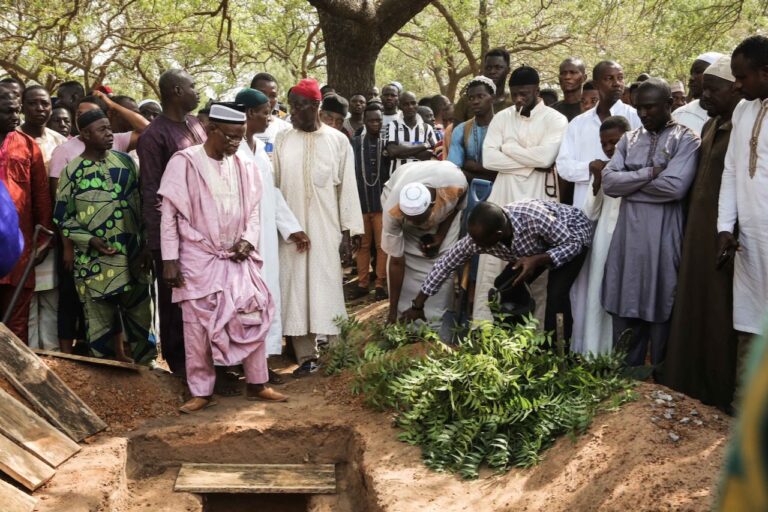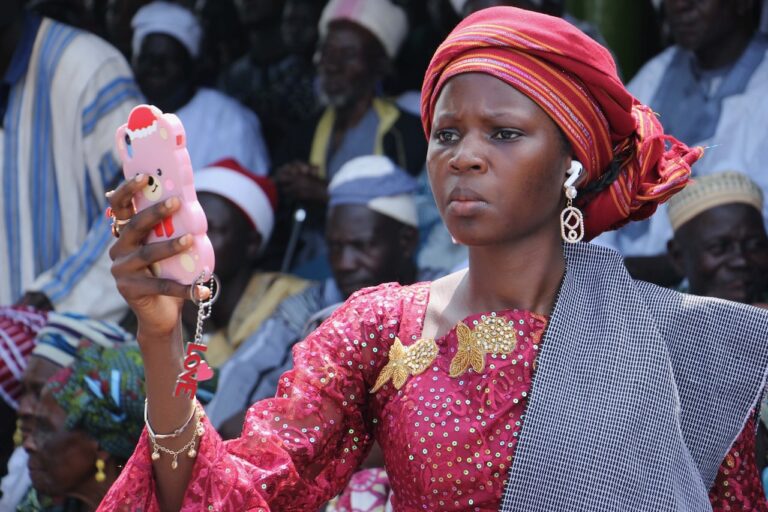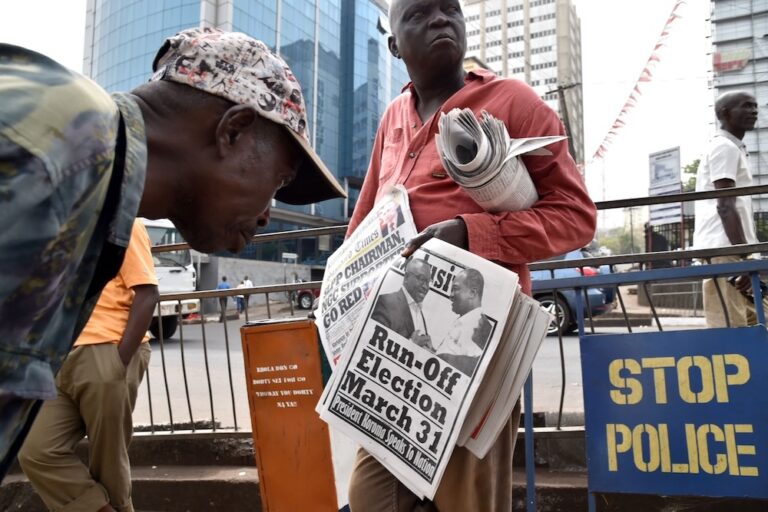August 2022 in Africa: A free expression round up produced by IFEX’s regional editor Reyhana Masters, based on IFEX member reports and news from the region.
August kicked off with the momentous news of the passing of Resolution 522 on the Protection Of Women Against Digital Violence In Africa, during the 72nd virtual session of the African Commission on Human and People’s Rights (ACHPR).
The resolution acknowledged that “women who access the internet are constantly at the risk of violence […] and have been subjected to some form of harassment, while States continue to have gaps in their legal framework to protect women against digital violence.”
This is affirmed through research by CIPESA, which found that cyberstalking, online sexual harassment, and blackmail through non-consensual sharing of personal information promoted and normalised violence against women and girls who use the internet in Uganda.
Resolution 522 calls on member states to take concrete and practical actions, which include carrying out research on digital violence against women and reviewing or adopting legislation to combat all forms of digital violence, while introducing interventions that seek to address the root causes – “to bring about changes in social and cultural attitudes and remove gender norms and stereotypes”.
Another cause for celebration was the appointment of prominent Pan-African digital rights activist Gbenga Sesan as one of the 10 members of the inaugural Internet Governance Forum Leadership Panel, appointed by United Nations Secretary General António Guterres on 16 August.
The Panel is intended to be “a strategic, empowered, and multi-stakeholder body, to support and strengthen the mandate of the Internet Governance Forum,” as recommended in the Secretary General’s Road Map for Digital Cooperation.
Moving to southern Africa, Zambian television and radio presenter Dingindaba Jonah Buyoya was awarded the 2022 BBC News Komla Dumor Award. At 25, Buyoya is the youngest recipient of the award and the first beneficiary selected from southern Africa.
Broadcasting on the firing line
The right to communicate and access information through a critical mass communication medium in Africa – radio – is being severely hindered by the actions of state and non-state actors in Nigeria, Malawi, and Ghana. Radio remains the most used mass-communication medium in Africa, as it has the widest geographical reach, is accessible at relatively low cost, and is portable.
Nigeria
The cancellation of licences of 52 broadcast stations across Nigeria by the country’s regulator, the National Broadcasting Commission (NBC), on 19 August, triggered a wave of condemnations including by IFEX member Media Rights Agenda, who described “the action as ill-advised, insensitive and antithetical to the interests of the Nigerian public.”
The uproar pushed the regulator to “temporarily suspend the shutdown following positive responses from some of the affected stations and the intervention of critical stakeholders in the industry.”
Meanwhile, the Social-Economic and Rights Accountability Project teamed up with the Nigerian Guild of Editors to legally challenge the suspension, citing that the section of the law used to enforce the cancellation of the licences is inconsistent with freedom of expression and access to information rights. The matter has been adjourned until September.
Earlier in the month, the NBC imposed fines of N5 million each (approx US$11,922) on Multichoice Nigeria Limited – the owners of DSTV; TelCom Satellite Limited (TSTV) and NTA Startimes Limited – for carrying a documentary by BBC Africa Eye entitled “Bandits Warlords of Zamfara'”. The regulator had also fined Trust-TV Network Limited N5 million regarding the documentary “Nigeria’s Banditry – The Inside Story”.
An opinion piece by The Conversation Africa countered NBC’s claim that the documentaries compromised Nigeria’s national security and glorified banditry, pointing out that, on the contrary, “the documentary educated Nigerians by providing insights into the factors driving insurgency, terrorism and banditry. Such factors include ethnic rivalry, clashes of livelihoods, poverty and corruption.”
Malawi
The Malawi chapter of the Media Institute of Southern Africa (MISA-Malawi) expressed their apprehension over the loss of 250 full time and part time jobs as a direct result of the withdrawal of broadcasting licences by the country’s broadcasting regulator – the Malawi Communications Regulatory Authority.
Since June, MACRA has pulled the plug on three television stations and six radio stations over delayed payment of annual license fees. MACRA’s axe also hangs over 30 other broadcasters who could be shut down by the end of the year. MISA Malawi says the authority’s decision contradicts not only the spirit of freedom of expression and access to information, but the regulatory body’s mandate to develop the industry.
Malawi’s ailing broadcasting industry is indicative of the situation across the continent which has seen broadcasters failing to pay the exorbitant license fees, among other operational costs.
Ghana
Unhappy with the content of their respective community broadcasters, two separate traditional councils in Ghana are retaliating by censuring the radio stations.
Upon inquiring why it had not been invited to cover the launch of the Asafotufiami Festival, the management of Radio Ada received a letter outlining restrictions that had been placed on it, which effectively banned the station from officially covering the event.
The chairman of the festival’s planning committee, Nene Agudey Obichere III, informed Radio Ada that it would not be allowed on any stage at the festival, the chiefs would not grant interviews to the journalists from the station, and three journalists in particular – Noah Dameh, Serwah Warri and Amanor Dzeagu – would not be allowed at the venue in clothing identifying them as journalists from the radio station.
Just a few weeks later, the Kumasi Traditional Council in the Ashanti region of Ghana ordered the management of Oyerepa FM and TV to suspend its operations. The council had taken exception to accusations by former presidential candidate Akwasi Addai Odike that the chiefs were indifferent to the destruction of the land in their jurisdiction being caused by illegal mining.
Support group SMUG suspended
The Sexual Minorities of Uganda (SMUG) – one of the country’s most prominent support groups for lesbian, gay, bisexual, transgender and queer people – was instructed by Uganda’s National Bureau for Non-Governmental Organizations (NGO Bureau) to suspend its activities, on the basis that it was improperly registered and lacked the requisite documentation.
SMUG has been providing services and advocating for LGBTQI rights since 2004. It applied to the Uganda Registration Services Bureau to be registered in 2012, but was rejected on the basis that the name was “undesirable and un-registrable.”
As reported in The Guardian: “the executive director of SMUG, Frank Mugisha, said the suspension was “a clear witch-hunt rooted in systematic homophobia that is fuelled by anti-gay and anti-gender movements”.
In a statement in support of SMUG, Rainbow Reload, the global not-for-profit organisation helping LGBTQI+ people facing persecution, describes the suspension of SMUG as “an indication of the shrinking presence of civil society space available to LGBTQI+ advocates in Uganda … We know that without civil society organizations to advocate for human rights for LGBTQI+ persons, this could lead to the state targeting the community … “
New & Noteworthy…
During a four day visit to Mozambique, a high level International Press Institute (IPI) delegation met with journalists, civil society, government, political parties, and members of the diplomatic community “to learn more about the media environment and the challenges that journalists in Mozambique face in being able to do their work freely, independently, and safely.” The delegation expressed concerns about the “unclear legal and regulatory environment […] the increasing restrictions on press freedom and the shrinking space for independent journalism in the country.”
The launch of the Comprehensive Framework on the Protection of Journalists on 2 August 2022 in Freetown, Sierra Leone, saw a critical interface between the media, security agencies and government departments. Focused on the safety and protection of journalists, the document crafted by the Media Foundation of West Africa (MFWA) through a multi-stakeholder approach with local groups, is part of their efforts to reduce media violations and end impunity for crimes committed against the media.
Coming up: CIPESA’s annual Forum on Internet Freedom in Africa (#FIFAfrica22), to be held in Lusaka, Zambia, from 26 to 29 September, will be the first in-person event since 2019, after global COVID-19 restrictions were imposed in 2020.
In Brief
- Diing Magot, a freelance journalist for the Voice of America in South Sudan, was detained for eight days after being arrested on her way back from covering a peaceful protest at Konyo-Konyo Main Market. The spokesperson for South Sudan’s national police, Daniel Justin Boulo Achor, said authorities had charged Magot with crimes related to her alleged participation in the protest.
- Ivory Coast investigative journalist Noël Kouadio Konan was convicted of defamation and ordered to pay a US$4,600 fine by a court in Abidjan for a tweet he posted on the alleged theft of funds belonging to former president Henri Konan Bédié at a particular bank. The bank then filed a criminal defamation complaint against the journalist.



